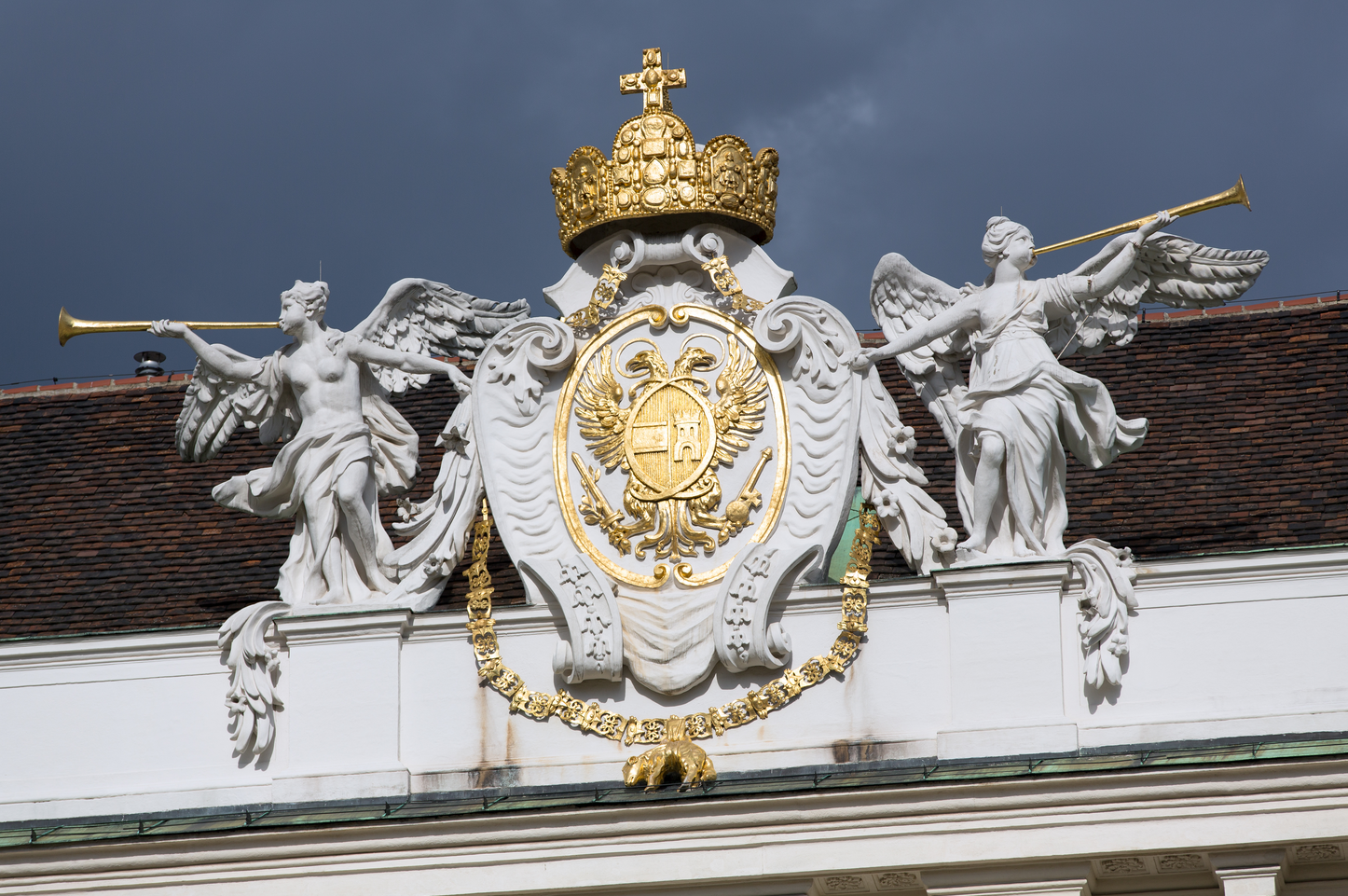Editor’s Note: The following comprises the twenty-first, and final, chapter of The Holy Roman Empire, by James Bryce (published 1871). All spelling in the original.
(Continued from Part 20)
CHAPTER XXI
CONCLUSION
General Summary
After the attempts already made to examine separately each of the phases of the Empire, little need be said, in conclusion, upon its nature and results in general. A general character can hardly help being either vague or false. For the aspects which the Empire took are as many and as various as the ages and conditions of society during which it continued to exist. Among the exhausted peoples around the Mediterranean, whose national feeling had died out, whose faith was extinct or turned to superstition, whose thought and art was a faint imitation of the Greek, there arises a huge despotism, first of a city, then of an administrative system, which presses with equal weight on all its subjects, and becomes to them a religion as well as a government. Just when the mass is at length dissolving, the tribes of the North come down, too rude to maintain the institutions they found subsisting, too few to introduce their own, and a weltering confusion follows, till the strong hand of the first Frankish Emperor raises the fallen image and bids the nations bow down to it once more. Under him it is for some brief space a theocracy; under his German successors the first of feudal kingdoms, the centre of European chivalry. As feudalism wanes, it is again transformed, and after promising for a time to become an hereditary Hapsburg monarchy, sinks at last into the presidency, not more dignified than powerless, of an international league.
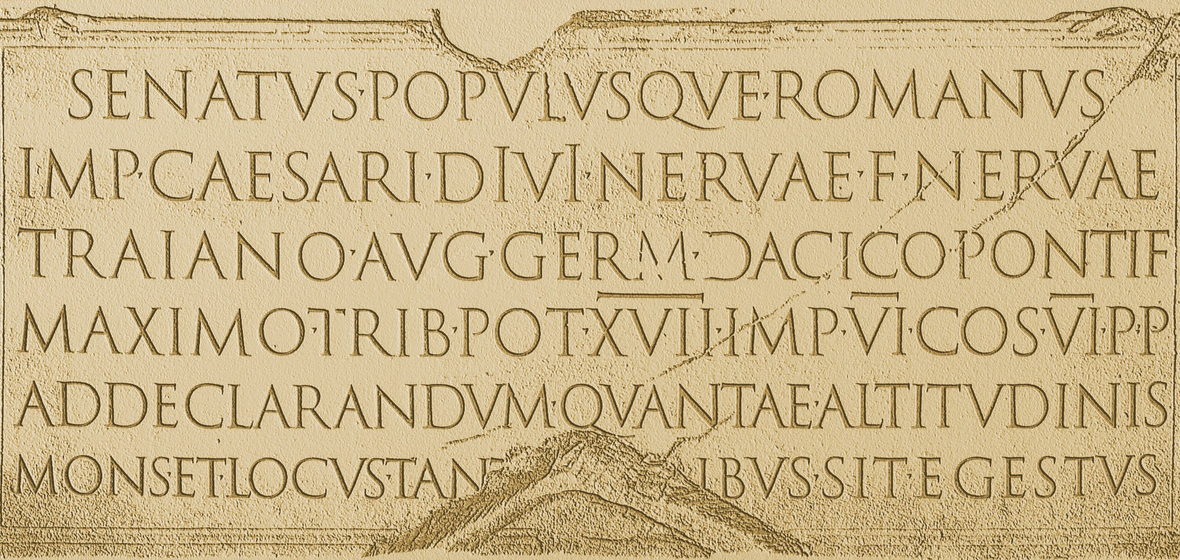
Perpetuation of the name of Rome
To us moderns, a perpetuation under conditions so diverse of the same name and the same pretensions, appears at first sight absurd, a phantom too vain to impress the most superstitious mind. Closer examination will correct such a notion. No power was ever based on foundations so sure and deep as those which Rome laid during three centuries of conquest and four of undisturbed dominion. If her empire had been an hereditary or local kingdom, it might have fallen with the extinction of the royal line, the conquest of the tribe, the destruction of the city to which it was attached. But it was not so limited. It was imperishable because it was universal; and when its power had ceased, it was remembered with awe and love by the races whose separate existence it had destroyed, because it had spared the weak while it smote down the strong; because it had granted equal rights to all, and closed against none of its subjects the path of honourable ambition. When the military power of the conquering city had departed, her sway over the world of thought began: by her the theories of the Greeks had been reduced to practice; by her the new religion had been embraced and organized; her language, her theology, her laws, her architecture made their way where the eagles of war had never flown, and with the spread of civilization have found new homes on the Ganges and the Mississippi.
Parallel instances. Claims to represent the Roman Empire.
Nor is such a claim of government prolonged under changed conditions by any means a singular phenomenon. Titles sum up the political history of nations, and are as often causes as effects: if not insignificant now, how much less so in ages of ignorance and unreason. It would be an instructive, if it were not a tedious task, to examine the many pretensions that are still put forward to represent the Empire of Rome, all of them baseless, none of them effectless.
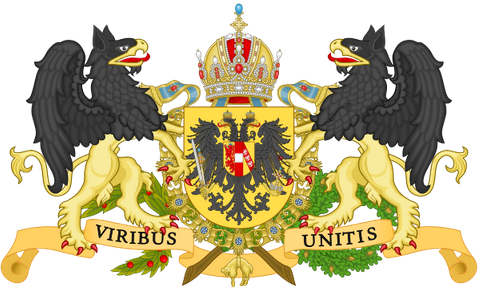
Austria
Austria clings to a name which seems to give her a sort of precedence in Europe, and was wont, while she held Lombardy, to justify her position there by invoking the feudal rights of the Hohenstaufen. With no more legal right than the prince of Reuss or the landgrave of Homburg might pretend to, she has assumed the arms and devices of the old Empire, and being almost the youngest of European monarchies, is respected as the oldest and most conservative.
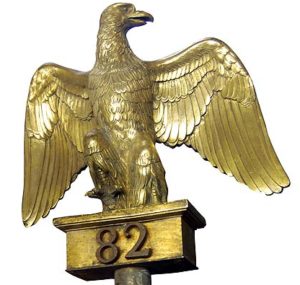
France
Bonapartean France, as the self-appointed heir of the Carolingians, grasped for a time the sceptre of the West, and still aspires to hold the balance of European politics, and be recognized as the leader and patron of the so-called Latin races on both sides of the Atlantic.
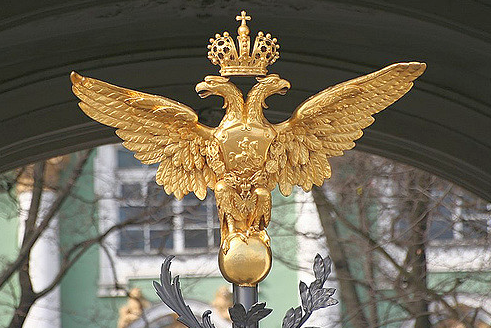
Russia
Professing the creed of Byzantium, Russia claims the crown of the Byzantine Cæsars, and trusts that the capital which prophecy has promised for a thousand years will not be long withheld. The doctrine of Panslavism, under an imperial head of the whole Eastern church, has become a formidable engine of aggression in the hands of a crafty and warlike despotism.
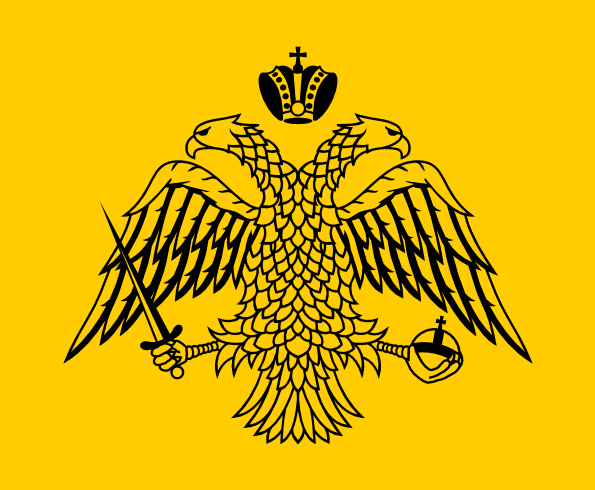
Greece
Another testimony to the enduring influence of old political combinations is supplied by the eagerness with which modern Hellas has embraced the notion of gathering all the Greek races into a revived Empire of the East, with its capital on the Bosphorus.
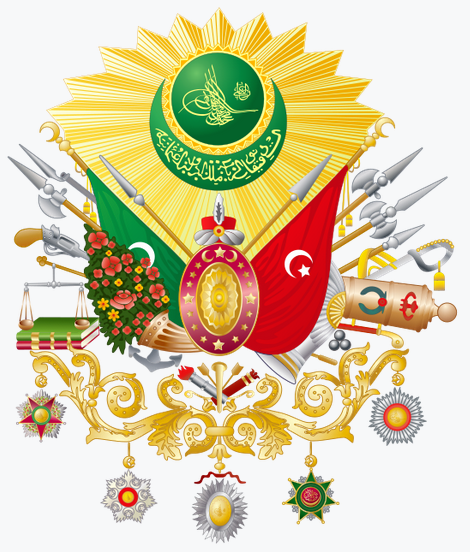
The Turks
Nay, the intruding Ottoman himself, different in faith as well as in blood, has more than once declared himself the representative of the Eastern Cæsars, whose dominion he extinguished. Solyman the Magnificent assumed the name of Emperor, and refused it to Charles the Fifth: his successors were long preceded through the streets of Constantinople by twelve officers, bearing straws aloft, a faint semblance of the consular fasces that had escorted a Quinctius or a Fabius through the Roman forum. Yet in no one of these cases has there been that apparent legality of title which the shouts of the people and the benediction of the pontiff conveyed to Charles and Otto.
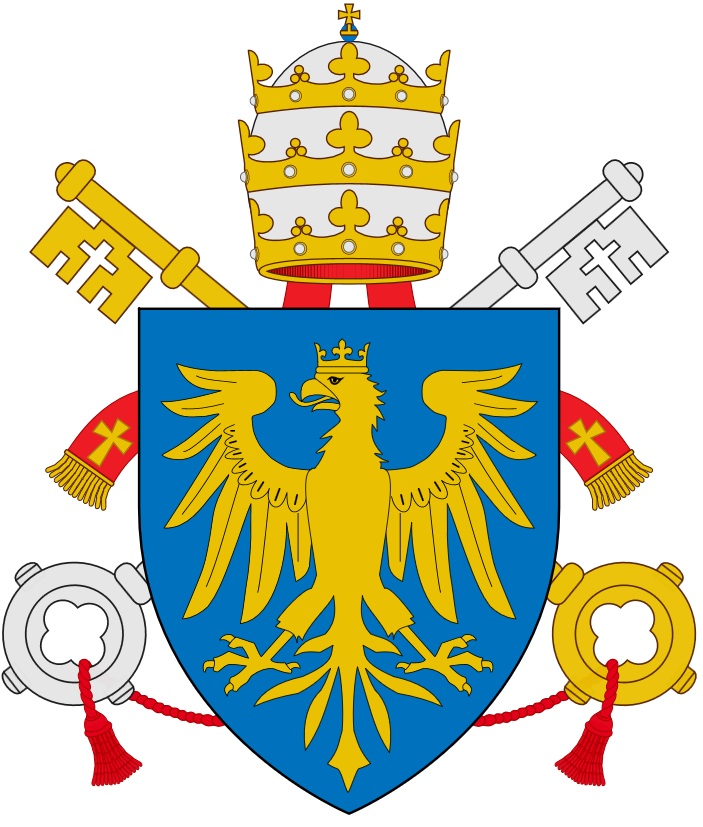
Parallel of the Papacy
These examples, however, are minor parallels: the complement and illustration of the history of the Empire is to be found in that of the Holy See. The Papacy, whose spiritual power was itself the offspring of Rome’s temporal dominion, evoked the phantom of her parent, used it, obeyed it, rebelled and overthrew it, in its old age once more embraced it, till in its downfall she has heard the knell of her own approaching doom.
Both Papacy and Empire rose in an age when the human spirit was utterly prostrated before authority and tradition, when the exercise of private judgment was impossible to most and sinful to all. Those who believed the miracles recorded in the Acta Sanctorum, and did not question the Isidorian decretals, might well recognize as ordained of God the twofold authority of Rome, founded, as it seemed to be, on so many texts of Scripture, and confirmed by five centuries of undisputed possession.
Both sanctioned and satisfied the passion of the Middle Ages for unity. Ferocity, violence, disorder, were the conspicuous evils of that time: hence all the aspirations of the good were for something which, breaking the force of passion and increasing the force of sympathy, should teach the stubborn wills to sacrifice themselves in the view of a common purpose. To those men, moreover, unable to rise above the sensuous, not seeing the true connexion or the true difference of the spiritual and the secular, the idea of the Visible Church was full of awful meaning. Solitary thought was helpless, and strove to lose itself in the aggregate, since it could not create for itself that which was universal. The schism that severed a man from the congregation of the faithful on earth was hardly less dreadful than the heresy which excluded him from the company of the blessed in heaven. He who kept not his appointed place in the ranks of the church militant had no right to swell the rejoicing anthems of the church triumphant. Here, as in so many other cases, the continued use of traditional language seems to have prevented us from seeing how great is the difference between our own times and those in which the phrases we repeat were first used, and used in full sincerity. Whether the world is better or worse for the change which has passed upon its feelings in these matters is another question: all that it is necessary to note here is that the change is a profound and pervading one. Obedience, almost the first of mediæval virtues, is now often spoken of as if it were fit only for slaves or fools. Instead of praising, men are wont to condemn the submission of the individual will, the surrender of the individual belief, to the will or the belief of the community. Some persons declare variety of opinion to be a positive good. The great mass have certainly no longing for an abstract unity of faith. They have no horror of schism. They do not, cannot, understand the intense fascination which the idea of one all-pervading church exercised upon their mediæval forefathers. A life in the church, for the church, through the church; a life which she blessed in mass at morning and sent to peaceful rest by the vesper hymn; a life which she supported by the constantly recurring stimulus of the sacraments, relieving it by confession, purifying it by penance, admonishing it by the presentation of visible objects for contemplation and worship,—this was the life which they of the Middle Ages conceived of as the rightful life for man; it was the actual life of many, the ideal of all. The unseen world was so unceasingly pointed to, and its dependence on the seen so intensely felt, that the barrier between the two seemed to disappear. The church was not merely the portal to heaven; it was heaven anticipated; it was already self-gathered and complete. In one sentence from a famous mediæval document may be found a key to much which seems strangest to us in the feelings of the Middle Ages: ‘The church is dearer to God than heaven. For the church does not exist for the sake of heaven, but conversely, heaven for the sake of the church.’
Again, both Empire and Papacy rested on opinion rather than on physical force, and when the struggle of the eleventh century came, the Empire fell, because its rival’s hold over the souls of men was firmer, more direct, enforced by penalties more terrible than the death of the body. The ecclesiastical body under Alexander and Innocent was animated by a loftier spirit and more wholly devoted to a single aim than the knights and nobles who followed the banner of the Swabian Cæsars. Its allegiance was undivided; it comprehended the principles for which it fought: they trembled at even while they resisted the spiritual power.
Papacy and Empire compared as perpetuations of a name
Both sprang from what might be called the accident of name. The power of the great Latin patriarchate was a Form: the ghost, it has been said, of the older Empire, favoured in its growth by circumstances, but really vital because capable of wonderful adaptation to the character and wants of the time. So too, though far less perfectly, was the Empire. Its Form was the tradition of the universal rule of Rome; it met the needs of successive centuries by civilizing barbarous peoples, by maintaining unity in confusion and disorganization, by controlling brute violence through the sanctions of a higher power, by being made the keystone of a gigantic feudal arch, by assuming in its old age the presidency of a European confederation. And the history of both, as it shews the power of ancient names and forms, shews also within what limits such a perpetuation is possible, and how it sometimes deceives men, by preserving the shadow while it loses the substance. This perpetuation itself, what is it but the expression of the belief of mankind, a belief incessantly corrected yet never weakened, that their old institutions do and may continue to subsist unchanged, that what has served their fathers will do well enough for them, that it is possible to make a system perfect and abide in it for ever? Of all political instincts this is perhaps the strongest; often useful, often grossly abused, but never so natural and so fitting as when it leads men who feel themselves inferior to their predecessors, to save what they can from the wreck of a civilization higher than their own. It was thus that both Papacy and Empire were maintained by the generations who had no type of greatness and wisdom save that which they associated with the name of Rome. And therefore it is that no examples shew so convincingly how hopeless are all such attempts to preserve in life a system which arose out of ideas and under conditions that have passed away. Though it never could have existed save as a prolongation, though it was and remained through the Middle Ages an anachronism, the Empire of the tenth century had little in common with the Empire of the second. Much more was the Papacy, though it too hankered after the forms and titles of antiquity, in reality a new creation. And in the same proportion as it was new, and represented the spirit not of a past age but of its own, was it a power stronger and more enduring than the Empire. More enduring, because younger, and so in fuller harmony with the feelings of its contemporaries: stronger, because at the head of the great ecclesiastical body, in and through which, rather than through secular life, all the intelligence and political activity of the Middle Ages sought its expression. The famous simile of Gregory the Seventh is that which best describes the Empire and the Popedom. They were indeed the ‘two lights in the firmament of the militant church,’ the lights which illumined and ruled the world all through the Middle Ages. And as moonlight is to sunlight, so was the Empire to the Papacy. The rays of the one were borrowed, feeble, often interrupted: the other shone with an unquenchable brilliance that was all her own.

In what sense was the Empire Roman?
The Empire, it has just been said, was never truly mediæval. Was it then Roman in anything but name? and was that name anything better than a piece of fantastic antiquarianism? It is easy to draw a comparison between the Antonines and the Ottos which should shew nothing but unlikeness. What the Empire was in the second century every one knows. In the tenth it was a feudal monarchy, resting on a strong territorial oligarchy. Its chiefs were barbarians, the sons of those who had destroyed Varus and baffled Germanicus, sometimes unable even to use the tongue of Rome. Its powers were limited. It could scarcely be said to have a regular organization at all, whether judicial or administrative. It was consecrated to the defence, nay, it existed by virtue of the religion which Trajan and Marcus had persecuted. Nevertheless, when the contrast has been stated in the strongest terms, there will remain points of resemblance. The thoroughly Roman idea of universal denationalization survived, and drew with it that of a certain equality among all free subjects. It has been remarked already, that the world’s highest dignity was for many centuries the only civil office to which any free-born Christian was legally eligible. And there was also, during the earlier ages, that indomitable vigour which might have made Trajan or Severus seek their true successors among the woods of Germany rather than in the palaces of Byzantium, where every office and name and custom had floated down from the court of Constantine in a stream of unbroken legitimacy. The ceremonies of Henry the Seventh’s coronation would have been strange indeed to Caius Julius Cæsar Octavianus Augustus; but how much nobler, how much more Roman in force and truth than the childish and unmeaning forms with which a Palæologus was installed! It was not in purple buskins that the dignity of the Luxemburger lay. To such a boast the Germanic Empire had long ere its death lost right: it had lived on, when honour and nature bade it die: it had become what the Empire of the Moguls was, and that of the Ottomans is now, a curious relic of antiquity, over which the imaginative might muse, but which the mass of men would push aside with impatient contempt. But institutions, like men, should be judged by their prime.
‘Imperialism:’ Roman, French, and mediæval
The comparison of the old Roman Empire with its Germanic representative raises a question which has been a good deal canvassed of late years. That wonderful system which Julius Cæsar and his subtle nephew erected upon the ruins of the republican constitution of Rome has been made the type of a certain form of government and of a certain set of social as well as political arrangements, to which, or rather to the theory whereof they are a part, there has been given the name of Imperialism. The sacrifice of the individual to the mass, the concentration of all legislative and judicial powers in the person of the sovereign, the centralization of the administrative system, the maintenance of order by a large military force, the substitution of the influence of public opinion for the control of representative assemblies, are commonly taken, whether rightly or wrongly, to characterize that theory. Its enemies cannot deny that it has before now given and may again give to nations a sudden and violent access of aggressive energy; that it has often achieved the glory (whatever that may be) of war and conquest; that it has a better title to respect in the ease with which it may be made, as it was by the Flavian and Antonine Cæsars of old, and at the beginning of this century by Napoleon in France, the instrument of comprehensive reforms in law and government. The parallel between the Roman world under the Cæsars and the French people now is indeed less perfect than those who dilate upon it fancy. That equalizing despotism which was a good to a medley of tribes, the force of whose national life had spent itself and left them languid, yet restless, with all the evils of isolation and none of its advantages, is not necessarily a good to a country already the strongest and most united in Europe, a country where the administration is only too perfect, and the pressure of social uniformity only too strong. But whether it be a good or an evil, no one can doubt that France represents, and has always represented, the imperialist spirit of Rome far more truly than those whom the Middle Ages recognized as the legitimate heirs of her name and dominion.
Political character of the Teutonic and Gallic races
In the political character of the French people, whether it be the result of the five centuries of Roman rule in Gaul, or rather due to the original instincts of the Gallic race, is to be found their claim, a claim better founded than any which Napoleon put forward, to be the Romans of the modern world. The tendency of the Teuton was and is to the independence of the individual life, to the mutual repulsion, if the phrase may be permitted, of the social atoms, as contrasted with Keltic and so-called Romanic peoples, among which the unit is more completely absorbed in the mass, who live possessed by a common idea which they are driven to realize in the concrete. Teutonic states have been little more successful than their neighbours in the establishment of free constitutions. Their assemblies meet, and vote, and are dissolved, and nothing comes of it: their citizens endure without greatly resenting outrages that would raise the more excitable French or Italians in revolt. But, whatever may have been the form of government, the body of the people have in Germany always enjoyed a freedom of thought which has made them comparatively careless of politics; and the absolutism of the Elbe is at this day no more like that of the Seine than a revolution at Dresden is to a revolution at Paris. The rule of the Hohenstaufen had nothing either of the good or the evil of the imperialism which Tacitus painted, or of that which the panegyrists of the present system in France paint in colours somewhat different from his.
Essential principles of the mediæval Empire
There was, nevertheless, such a thing as mediæval imperialism, a theory of the nature of the state and the best form of government, which has been described once already, and need not be described again. It is enough to say, that from three leading principles all its properties may be derived. The first and the least essential was the existence of the state as a monarchy. The second was the exact coincidence of the state’s limits, and the perfect harmony of its workings with the limits and the workings of the church. The third was its universality. These three were vital. Forms of political organization, the presence or absence of constitutional checks, the degree of liberty enjoyed by the subject, the rights conceded to local authorities, all these were matters of secondary importance. But although there brooded over all the shadow of a despotism, it was a despotism not of the sword but of law; a despotism not chilling and blighting, but one which, in Germany at least, looked with favour on municipal freedom, and everywhere did its best for learning, for religion, for intelligence; a despotism not hereditary, but one which constantly maintained in theory the principle that he should rule who was found the fittest. To praise or to decry the Empire as a despotic power is to misunderstand it altogether. We need not, because an unbounded prerogative was useful in ages of turbulence, advocate it now; nor need we, with Sismondi, blame the Frankish conqueror because he granted no ‘constitutional charter’ to all the nations that obeyed him. Like the Papacy, the Empire expressed the political ideas of a time, and not of all time: like the Papacy, it decayed when those ideas changed; when men became more capable of rational liberty; when thought grew stronger, and the spiritual nature shook itself more free from the bonds of sense.
Influence of the Holy Empire on Germany
The influence of the Empire upon Germany is a subject too wide to be more than glanced at here. There is much to make it appear altogether unfortunate. For many generations the flower of Teutonic chivalry crossed the Alps to perish by the sword of the Lombards, or the deadlier fevers of Rome. Italy terribly avenged the wrongs she suffered. Those who destroyed the national existence of another people forfeited their own: the German kingdom, crushed beneath the weight of the Roman Empire, could never recover strength enough to form a compact and united monarchy, such as arose elsewhere in Europe: the race whom their neighbours had feared and obeyed till the fourteenth century saw themselves, down even to our own day, the prey of intestine feuds and their country the battlefield of Europe. Spoiled and insulted by a neighbour restlessly aggressive and superior in all the arts of success, they came to regard France as the persecuted Slave regards them. The want of national union and political liberty from which Germany has suffered, and to some extent suffers still, cannot be attributed to the differences of her races; for, conspicuous as that difference was in the days of Otto the Great, it was no greater than in France, where intruding Franks, Goths, Burgundians, and Northmen were mingled with primitive Kelts and Basques; not so great as in Spain, or Italy, or Britain. Rather is it due to the decline of the central government, which was induced by its strife with the Popedom, its endless Italian wars, and the passion for universal dominion which made it the assailant of all the neighbouring countries. The absence or the weakness of the monarch enabled his feudal vassals to establish petty despotisms, debarring the nation from united political action, and greatly retarding the emancipation of the commons. Thus, while the princes became shamelessly selfish, justifying their resistance to the throne as the defence of their own liberty—liberty to oppress the subject—and ready on the least occasion to throw themselves into the arms of France, the body of the people were deprived of all political training, and have found the lack of such experience impede their efforts to this day.
For these misfortunes, however, there has not been wanting some compensation. The inheritance of the Roman Empire made the Germans the ruling race of Europe, and the brilliance of that glorious dawn can never fade entirely from their name. A peaceful people now, peaceful in sentiment even now when they have become a great military power, submissive to paternal government, and given to the quiet enjoyments of art, music, and meditation, they delight themselves with memories of the time when their conquering chivalry was the terror of the Gaul and the Slave, the Lombard and the Saracen. The national life received a keen stimulus from the sense of exaltation which victory brought, and from the intercourse with countries where the old civilization had not wholly perished. It was this connexion with Italy that raised the German lands out of barbarism, and did for them the work which Roman conquest had performed in Gaul, Spain, and Britain. From the Empire flowed all the richness of their mediæval life and literature: it first awoke in them a consciousness of national existence; its history has inspired and served as material to their poetry; to many ardent politicians the splendours of the past have become the beacon of the future. There is a bright side even to their political disunion. When they complain that they are not a nation, and sigh for the harmony of feeling and singleness of aim which their great rival displays, the example of the Greeks may comfort them. To the variety which so many small governments have produced may be partly attributed the breadth of development in German thought and literature, by virtue of which it transcends the French hardly less than the Greek surpassed the Roman. Paris no doubt is great, but a country may lose as well as gain by the predominance of a single city; and Germany need not mourn that she alone among modern states has not and never has had a capital.
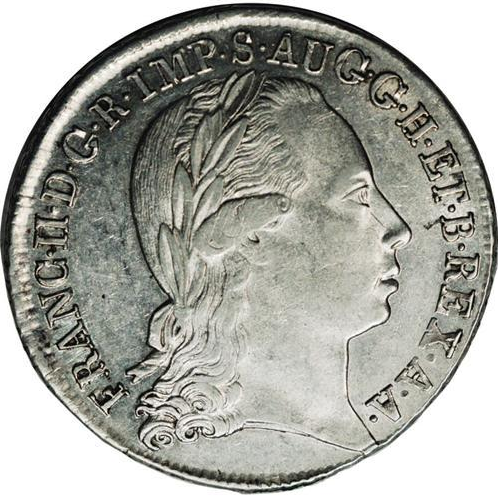
Austria as heir of the Holy Empire
The merits of the old Empire were not long since the subject of a brisk controversy among several German professors of history. The spokesmen of the Austrian or Roman Catholic party, a party which ten years ago was not less powerful in some of the minor South German States than in Vienna, claimed for the Hapsburg monarchy the honour of being the legitimate representative of the mediæval Empire, and declared that only by again accepting Hapsburg leadership could Germany win back the glory and the strength that once were hers. The North German liberals ironically applauded the comparison. ‘Yes,’ they replied, ‘your Austrian Empire, as it calls itself, is the true daughter of the old despotism: not less tyrannical, not less aggressive, not less retrograde; like its progenitor, the friend of priests, the enemy of free thought, the trampler upon the national feeling of the peoples that obey it. It is you whose selfish and anti-national policy blasts the hope of German unity now, as Otto and Frederick blasted it long ago by their schemes of foreign conquest. The dream of Empire has been our bane from first to last.’ It is possible, one may hope, to escape the alternative of admiring the Austrian Empire or denouncing the Holy Roman. Austria has indeed, in some things, but too faithfully reproduced the policy of the Saxon and Swabian Cæsars. Like her, they oppressed and insulted the Italian people: but it was in the defence of rights which the Italians themselves admitted. Like her, they lusted after a dominion over the races on their borders, but that dominion was to them a means of spreading civilization and religion in savage countries, not of pampering upon their revenues a hated court and aristocracy. Like her, they strove to maintain a strong government at home, but they did it when a strong government was the first of political blessings. Like her, they gathered and maintained vast armies; but those armies were composed of knights and barons who lived for war alone, not of peasants torn away from useful labour and condemned to the cruel task of perpetuating their own bondage by crushing the aspirations of another nationality. They sinned grievously, no doubt, but they sinned in the dim twilight of a half-barbarous age, not in the noonday blaze of modern civilization. The enthusiasm for mediæval faith and simplicity which was so fervid some years ago has run its course, and is not likely soon to revive. He who reads the history of the Middle Ages will not deny that its heroes, even the best of them, were in some respects little better than savages. But when he approaches more recent times, and sees how, during the last three hundred years, kings have dealt with their subjects and with each other, he will forget the ferocity of the Middle Ages, in horror at the heartlessness, the treachery, the injustice all the more odious because it sometimes wears the mask of legality, which disgraces the annals of the military monarchies of Europe. With regard, however, to the pretensions of modern Austria, the truth is that this dispute about the worth of the old system has no bearing upon them at all. The day of imperial greatness was already past when Rudolf the first Hapsburg reached the throne; while during what may be called the Austrian period, from Maximilian to Francis II, the Holy Empire was to Germany a mere clog and incumbrance, which the unhappy nation bore because she knew not how to rid herself of it. The Germans are welcome to appeal to the old Empire to prove that they were once a united people. Nor is there any harm in their comparing the politics of the twelfth century with those of the nineteenth, although to argue from the one to the other seems to betray a want of historical judgment. But the one thing which is wholly absurd is to make Francis Joseph of Austria the successor of Frederick of Hohenstaufen, and justify the most sordid and ungenial of modern despotisms by the example of the mirror of mediæval chivalry, the noblest creation of mediæval thought.
Bearing of the Empire upon the progress of European civilization
We are not yet far enough from the Empire to comprehend or state rightly its bearing on European progress. The mountain lies behind us, but miles must be traversed before we can take in at a glance its peaks and slopes and buttresses, picture its form, and conjecture its height. Of the perpetuation among the peoples of the West of the arts and literature of Rome it was both an effect and a cause, a cause only less powerful than the church. It would be endless to shew in how many ways it affected the political institutions of the Middle Ages, and through them of the whole civilized world. Most of the attributes of modern royalty, to take the most obvious instance, belonged originally and properly to the Emperor, and were borrowed from him by other monarchs. The once famous doctrine of divine right had the same origin.
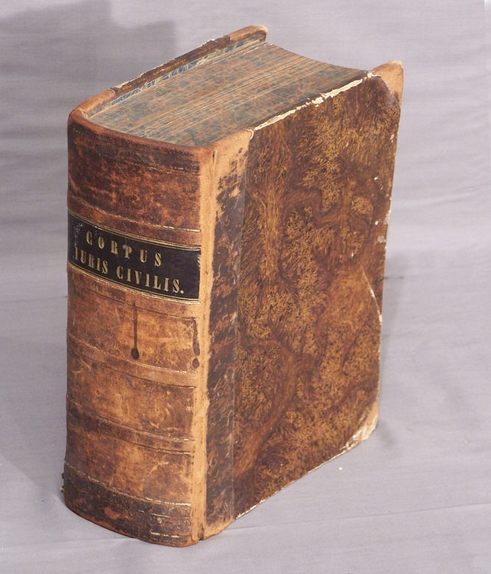
Influence upon modern jurisprudence
To the existence of the Empire is chiefly to be ascribed the prevalence of Roman law through Europe, and its practical importance in our own days. For while in Southern France and Central Italy, where the subject population greatly outnumbered their conquerors, the old system would have in any case survived, it cannot be doubted that in Germany, as in England, a body of customary Teutonic law would have grown up, had it not been for the notion that since the German monarch was the legitimate successor of Justinian, the Corpus Juris must be binding on all his subjects. This strange idea was received with a faith so unhesitating that even the aristocracy, who naturally disliked a system which the Emperors and the cities favoured, could not but admit its validity, and before the end of the Middle Ages Roman law prevailed through all Germany. When it is considered how great are the services which German writers have rendered and continue to render to the study of scientific jurisprudence, this result will appear far from insignificant. But another of still wider import followed. When by the Peace of Westphalia a crowd of petty principalities were recognized as practically independent states, the need of a code to regulate their intercourse became pressing. That code Grotius and his successors formed out of what was then the private law of Germany, which thus became the foundation whereon the system of international jurisprudence has been built up during the last two centuries. That system is, indeed, entirely a German creation, and could have arisen in no country where the law of Rome had not been the fountain of legal ideas and the groundwork of positive codes. In Germany, too, was it first carried out in practice, and that with a success which is the best, some might say the only, title of the later Empire to the grateful remembrance of mankind. Under its protecting shade small princedoms and free cities lived unmolested beside states like Saxony and Bavaria; each member of the Germanic body feeling that the rights of the weakest of his brethren were also his own.
Influence of the Empire upon the history of the Church
The most important chapter in the history of the Empire is that which describes its relation to the Church and the Papacy. Of the ecclesiastical power it was alternately the champion and the enemy. In the ninth and tenth centuries the Emperors extended the dominion of Peter’s chair: in the tenth and eleventh they rescued it from an abyss of guilt and shame to be the instrument of their own downfall. The struggle which Gregory the Seventh began, although it was political rather than religious, awoke in the Teutonic nations a hostility to the pretensions of the Romish court. That struggle ended, with the death of the last Hohenstaufen, in the victory of the priesthood, a victory whose abuse by the insolent and greedy pontiffs of the fourteenth and fifteenth centuries made it more ruinous than a defeat. The anger which had long smouldered in the breasts of the northern nations of Europe burst out in the sixteenth with a violence which alarmed those whom it had hitherto defended, and made the Emperors once more the allies of the Popedom, and the partners of its declining fortunes.
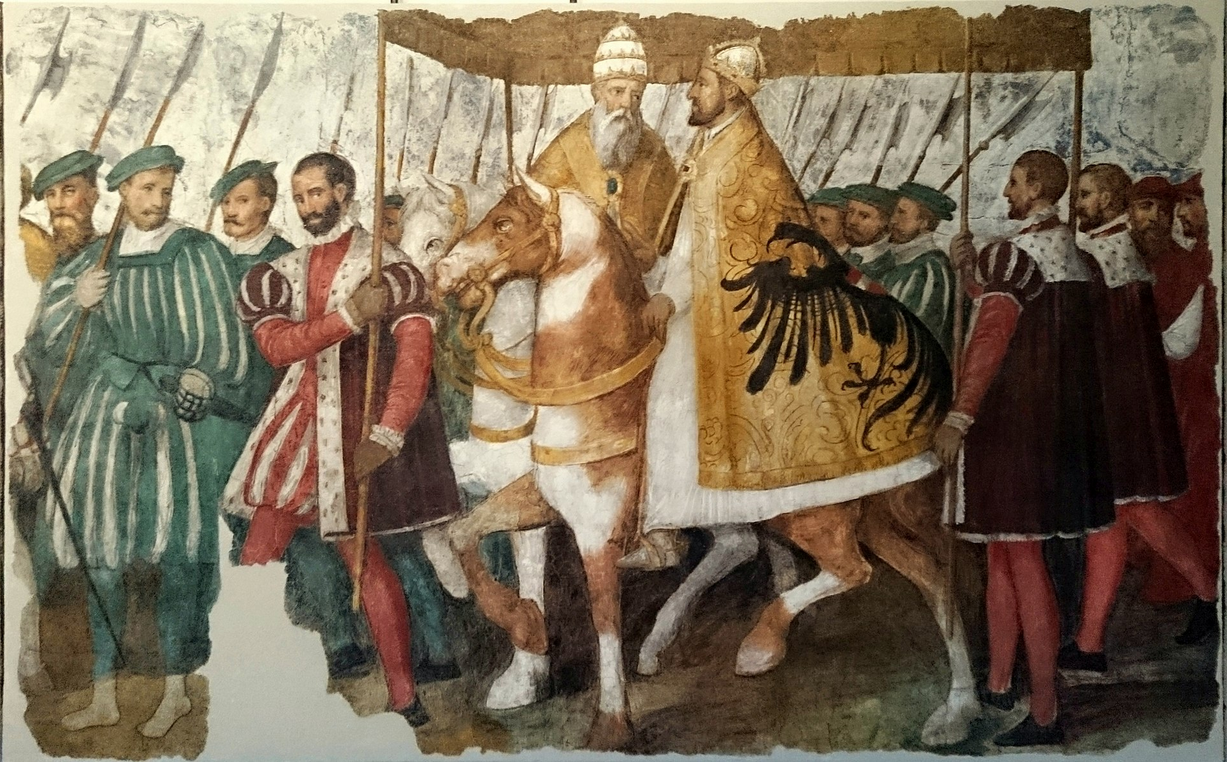
Nature of the question at issue between the Emperors and the Popes
But the nature of that alliance and of the hostility which had preceded it must not be misunderstood. It is a natural, but not the less a serious error to suppose, as modern writers often seem to do, that the pretensions of the Empire and the Popedom were mutually exclusive; that each claimed all the rights, spiritual and secular, of a universal monarch. So far was this from being the case, that we find mediæval writers and statesmen, even Emperors and Popes themselves, expressly recognizing a divinely appointed duality of government—two potentates, each supreme in the sphere of his own activity, Peter in things eternal, Cæsar in things temporal. The relative position of the two does indeed in course of time undergo a signal alteration. In the days of Charles, the barbarous age of modern Europe, when men were and could not but be governed chiefly by physical force, the Emperor was practically, if not theoretically, the grander figure. Four centuries later, in the era of Pope Innocent the Third, when the power of ideas had grown stronger in the world, and was able to resist or to bend to its service the arms and the wealth of men, we see the balance inclined the other way. Spiritual authority is conceived of as being of a nature so high and holy that it must inspire and guide the civil administration. But it is not proposed to supplant that administration nor to degrade its head: the great struggle of the eleventh and two following centuries does not aim at the annihilation of one or other power, but turns solely upon the character of their connexion. Hildebrand, the typical representative of the Popedom, requires the obedience of the Emperor on the ground of his own personal responsibility for the souls of their common subjects: he demands, not that the functions of temporal government shall be directly committed to himself, but that they shall be exercised in conformity with the will of God, whereof he is the exponent. The imperialist party had no means of meeting this argument, for they could not deny the spiritual supremacy of the Pope, nor the transcendant importance of eternal salvation. They could therefore only protest that the Emperor, being also divinely appointed, was directly answerable to God, and remind the Pope that his kingdom was not of this world. There was in truth no way out of the difficulty, for it was caused by the attempt to sever things that admit of no severance, life in the soul and life in the world, life for the future and life in the present. What it is most pertinent to remark is that neither combatant pushed his theory to extremities, since he felt that his adversary’s title rested on the same foundations as his own. The strife was keenest at the time when the whole world believed fervently in both powers; the alliance came when faith had forsaken the one and grown cold towards the other; from the Reformation onwards Empire and Popedom fought no longer for supremacy, but for existence. One is fallen already, the other shakes with every blast.
Ennobling influence of the conception of the World Empire
Nor was that which may be called the inner life of the Empire less momentous in its influence upon the minds of men than were its outward dealings with the Roman church upon her greatness and decline. In the Middle Ages, men conceived of the communion of the saints as the formal unity of an organized body of worshippers, and found the concrete realization of that conception in their universal religious state, which was in one aspect, the Church; in another, the Empire. Into the meaning and worth of the conception, into the nature of the connexion which subsists or ought to subsist between the Church and the State, this is not the place to inquire. That the form which it took in the Middle Ages was always imperfect and became eventually rigid and unprogressive was sufficiently proved by the event. But by it the European peoples were saved from the isolation, and narrowness, and jealous exclusiveness which had checked the growth of the earlier civilizations of the world, and which we see now lying like a weight upon the kingdoms of the East: by it they were brought into that mutual knowledge and co-operation which is the condition if it be not the source of all true culture and progress. For as by the Roman Empire of old the nations were first forced to own a common sway, so by the Empire of the Middle Ages was preserved the feeling of a brotherhood of mankind, a commonwealth of the whole world, whose sublime unity transcended every minor distinction.
Principles adverse to the Empire
As despotic monarchs claiming the world for their realm, the Teutonic Emperors strove from the first against three principles, over all of which their forerunners of the elder Rome had triumphed,—those of Nationality, Aristocracy, and Popular Freedom. Their early struggles were against the first of these, and ended with its victory in the emancipation, one after another, of England, France, Poland, Hungary, Denmark, Burgundy, and Italy. The second, in the form of feudalism, menaced even when seeming to embrace and obey them, and succeeded, after the Great Interregnum, in destroying their effective strength in Germany. Aggression and inheritance turned the numerous independent principalities thus formed out of the greater fiefs, into a few military monarchies, resting neither on a rude loyalty, like feudal kingdoms, nor on religious duty and tradition, like the Empire, but on physical force, more or less disguised by legal forms. That the hostility to the Empire of the third was accidental rather than necessary is seen by this, that the very same monarchs who strove to crush the Lombard and Tuscan cities favoured the growth of the free towns of Germany. Asserting the rights of the individual in the sphere of religion, the Reformation weakened the Empire by denying the necessity of external unity in matters spiritual: the extension of the same principle to the secular world, whose fulness is still withheld from the Germans, would have struck at the doctrine of imperial absolutism had it not found a nearer and deadlier foe in the actual tyranny of the princes. It is more than a coincidence, that as the proclamation of the liberty of thought had shaken it, so that of the liberty of action made by the revolutionary movement, whose beginning the world saw and understood not in 1789, whose end we see not yet, should have indirectly become the cause which overthrew the Empire.
Change marked by its fall
Its fall in the midst of the great convulsion that changed the face of Europe marks an era in history, an era whose character the events of every year are further unfolding: an era of the destruction of old forms and systems and the building up of new. The last instance is the most memorable. Under our eyes, the work which Theodoric and Lewis the Second, Guido and Ardoin and the second Frederick essayed in vain, has been achieved by the steadfast will of the Italian people. The fairest province of the Empire, for which Franconian and Swabian battled so long, is now a single monarchy under the Burgundian count, whom Sigismund created imperial vicar in Italy, and who wants only the possession of the capital to be able to call himself ‘king of the Romans’ more truly than Greek or Frank or Austrian has done since Constantine forsook the Tiber for the Bosphorus. No longer the prey of the stranger, Italy may forget the past, and sympathize, as she has now indeed, since the fortunate alliance of 1866, begun to sympathize, with the efforts after national unity of her ancient enemy—efforts confronted by so many obstacles that a few years ago they seemed all but hopeless. On the new shapes that may emerge in this general reconstruction it would be idle to speculate. Yet one prediction may be ventured. No universal monarchy is likely to arise. More frequent intercourse, and the progress of thought, have done much to change the character of national distinctions, substituting for ignorant prejudice and hatred a genial sympathy and the sense of a common interest. They have not lessened their force. No one who reads the history of the last three hundred years, no one, above all, who studies attentively the career of Napoleon, can believe it possible for any state, however great her energy and material resources, to repeat in modern Europe the part of ancient Rome: to gather into one vast political body races whose national individuality has grown more and more marked in each successive age.
Relations of the Empire to the nationalities of Europe
Nevertheless, it is in great measure due to Rome and to the Roman Empire of the Middle Ages that the bonds of national union are on the whole both stronger and nobler than they were ever before. The latest historian of Rome, after summing up the results to the world of his hero’s career, closes his treatise with these words: ‘There was in the world as Cæsar found it the rich and noble heritage of past centuries, and an endless abundance of splendour and glory, but little soul, still less taste, and, least of all, joy in and through life. Truly it was an old world, and even Cæsar’s genial patriotism could not make it young again. The blush of dawn returns not until the night has fully descended. Yet with him there came to the much-tormented races of the Mediterranean a tranquil evening after a sultry day; and when, after long historical night, the new day broke once more upon the peoples, and fresh nations in free self-guided movement began their course towards new and higher aims, many were found among them in whom the seed of Cæsar had sprung up, many who owed him, and who owe him still, their national individuality.’ If this be the glory of Julius, the first great founder of the Empire, so is it also the glory of Charles, the second founder, and of more than one amongst his Teutonic successors. The work of the mediæval Empire was self-destructive; and it fostered, while seeming to oppose, the nationalities that were destined to replace it. It tamed the barbarous races of the North, and forced them within the pale of civilization. It preserved the arts and literature of antiquity. In times of violence and oppression, it set before its subjects the duty of rational obedience to an authority whose watchwords were peace and religion. It kept alive, when national hatreds were most bitter, the notion of a great European Commonwealth. And by doing all this, it was in effect abolishing the need for a centralizing and despotic power like itself: it was making men capable of using national independence aright: it was teaching them to rise to that conception of spontaneous activity, and a freedom which is above law but not against it, to which national independence itself, if it is to be a blessing at all, must be only a means. Those who mark what has been the tendency of events since A.D. 1789, and who remember how many of the crimes and calamities of the past are still but half redressed, need not be surprised to see the so-called principle of nationalities advocated with honest devotion as the final and perfect form of political development. But such undistinguishing advocacy is after all only the old error in a new shape. If all other history did not bid us beware the habit of taking the problems and the conditions of our own age for those of all time, the warning which the Empire gives might alone be warning enough. From the days of Augustus down to those of Charles the Fifth the whole civilized world believed in its existence as a part of the eternal fitness of things, and Christian theologians were not behind heathen poets in declaring that when it perished the world would perish with it. Yet the Empire is gone, and the world remains, and hardly notes the change.
Difficulties arising from the nature of the subject
This is but a small part of what might be said upon an almost inexhaustible theme: inexhaustible not from its extent but from its profundity: not because there is so much to say, but because, pursue we it never so far, more will remain unexpressed, since incapable of expression. For that which it is at once most necessary and least possible to do, is to look at the Empire as a whole: a single institution, in which centres the history of eighteen centuries—whose outer form is the same, while its essence and spirit are constantly changing. It is when we come to consider it in this light that the difficulties of so vast a subject are felt in all their force. Try to explain in words the theory and inner meaning of the Holy Empire, as it appeared to the saints and poets of the Middle Ages, and that which we cannot but conceive as noble and fertile in its life, sinks into a heap of barren and scarcely intelligible formulas. Who has been able to describe the Papacy in the power it once wielded over the hearts and imaginations of men? Those persons, if such there still be, who see in it nothing but a gigantic upas-tree of fraud and superstition, planted and reared by the enemy of mankind, are hardly further from entering into the mystery of its being than the complacent political philosopher, who explains in neat phrases the process of its growth, analyses it as a clever piece of mechanism, enumerates and measures the interests it appealed to, and gives, in conclusion, a sort of tabular view of its results for good and for evil. So, too, is the Holy Empire above all description or explanation; not that it is impossible to discover the beliefs which created and sustained it, but that the power of those beliefs cannot be adequately apprehended by men whose minds have been differently trained, and whose imaginations are fired by different ideals. Something, yet still how little, we should know of it if we knew what were the thoughts of Julius Cæsar when he laid the foundations on which Augustus built: of Charles, when he reared anew the stately pile: of Barbarossa and his grandson, when they strove to avert the surely coming ruin. Something more succeeding generations will know, who will judge the Middle Ages more fairly than we, still living in the midst of a reaction against all that is mediæval, can hope to do, and to whom it will be given to see and understand new forms of political life, whose nature we cannot so much as conjecture. Seeing more than we do, they will also see some things less distinctly. The Empire which to us still looms largely on the horizon of the past, will to them sink lower and lower as they journey onwards into the future. But its importance in universal history it can never lose. For into it all the life of the ancient world was gathered: out of it all the life of the modern world arose.
THE END.

